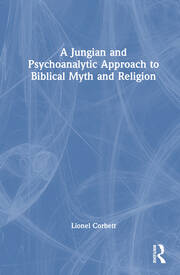This book describes some of the major psychological processes that underpin various biblical stories and some of the theological speculation to which they have given rise. Psychological biblical criticism, as described here, is suggested as an alternative or supplement to historical-cultural, textual, philological, literary, and other types of biblical criticism.
Using a combination of Jungian and psychoanalytic theory, Corbett shows how some biblical material arises from human psychodynamics, while some originates in the archetypal level of the psyche and is further elaborated as it passes through the human level of the psyche. The author addresses some of the traditional anxieties about psychological approaches to biblical stories. He views Jung’s approach as an evolving mythology of the sacred that offers an alternative to purely theological approaches to the Bible and to the traditions that emerged from it.
This book will be of value to practicing psychotherapists and analysts, particularly those who treat patients with a religious background, as well as trainees, clergy, and graduate students in this area.
Table of Contents
Introduction 1. A psychological approach to religion and the Bible. 2. Religions as expressions of the psyche 3. Psyche manifests itself in the Bible. 4. The Bible as myth 5. Psychopathology in religious systems 6. Religious narcissism and power dynamics in religion. 7. Mental illness in biblical characters 8. The psychodynamics of religions’ emphasis on sin 9. The biblical portrayal of Jesus References

